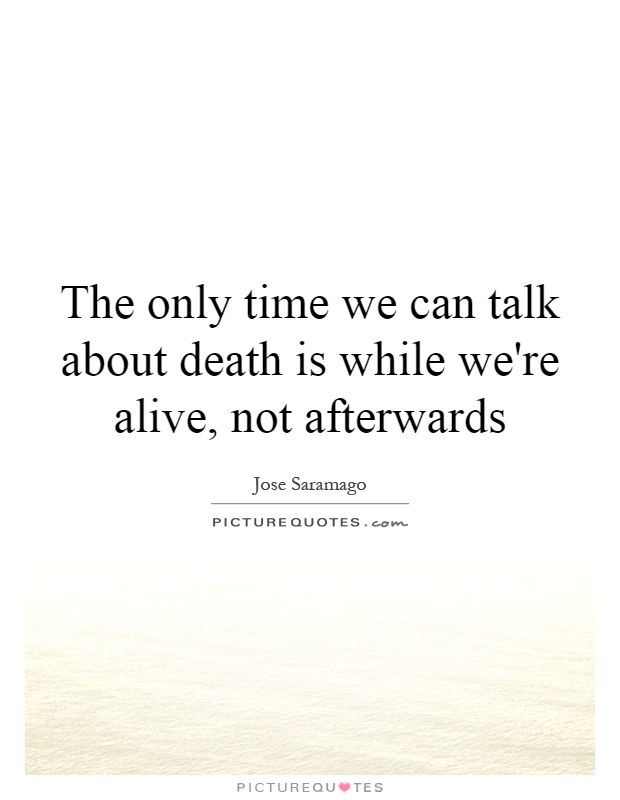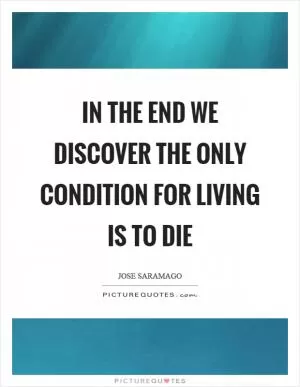The only time we can talk about death is while we're alive, not afterwards

The only time we can talk about death is while we're alive, not afterwards
Portuguese author José Saramago was known for his thought-provoking and philosophical novels that often delved into the complexities of life, death, and the human experience. One of his most famous quotes, “The only time we can talk about death is while we're alive, not afterwards,” encapsulates his unique perspective on mortality and the importance of confronting our own mortality while we still have the chance.Saramago’s novels often grapple with themes of death and the afterlife, exploring the ways in which individuals come to terms with their own mortality and the inevitability of death. In works such as “Blindness” and “Death with Interruptions,” Saramago challenges readers to confront their own fears and anxieties surrounding death, forcing them to consider what it means to truly live in the face of mortality.
By emphasizing the importance of discussing death while we are still alive, Saramago encourages readers to confront their own mortality and to reflect on the ways in which death shapes our lives. In a society that often shies away from discussing death and mortality, Saramago’s words serve as a reminder of the fleeting nature of life and the importance of living each day to the fullest.
Saramago’s unique perspective on death is reflected in his writing style, which often blurs the lines between reality and fiction, life and death. By challenging traditional notions of mortality and the afterlife, Saramago invites readers to consider the ways in which death shapes our lives and the ways in which we can come to terms with our own mortality.












 Friendship Quotes
Friendship Quotes Love Quotes
Love Quotes Life Quotes
Life Quotes Funny Quotes
Funny Quotes Motivational Quotes
Motivational Quotes Inspirational Quotes
Inspirational Quotes